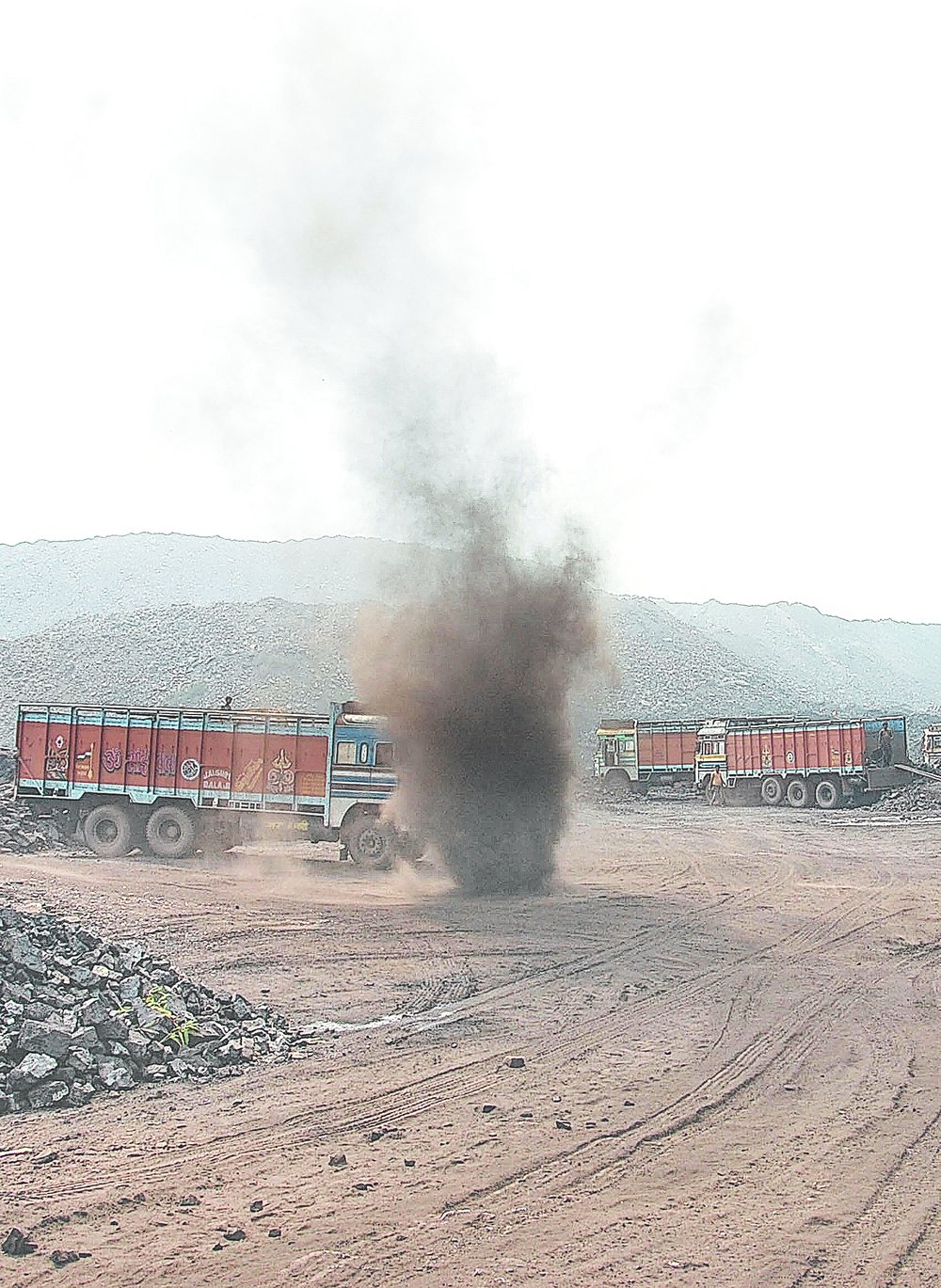
Smoke billows out of an open cast project of BCCL in Dhanbad. Picture by Gautam Dey
New Delhi, March 9: Five of the country's 32 severely polluted industrial areas are in Jharkhand, the Central Pollution Control Board (CPCB) has concluded after studying air, water and soil quality across the country while formulating a comprehensive environmental assessment report.
While Jamshedpur, Ramgarh, Bada Jamtara, Seraikela and West Singhbhum are the concern zones in Jharkhand, Gujarat, Maharashtra, Uttar Pradesh and Uttarakhand are home to the other seriously polluted industrial areas.
Also, coal capital Dhanbad is among 43 critically polluted areas of the country as identified in the CPCB assessment, the report of which was tabled in the Lok Sabha by the Union ministry of environment last week.
Jamshedpur is home to Tata Steel and Tata Motors plants, while several iron ore mines are spread across West Singhbhum and Jamtara. Over the last decade, Ramgarh, around 40km from Ranchi, has seen the mushrooming of a number of illegal sponge iron factories.
Seraikela-Kharsawan district, which borders Jamshedpur, hosts the Adityapur industrial area that has a number of auto ancillaries and power companies.
Environment experts say the CPCB study, which was conducted in collaboration with IIT-Delhi, highlights long-standing concerns, basically making the point that unless industries sincerely adopted eco-friendly technologies, air quality would continue to deteriorate.
'We have long been raising issues about the alarming rates of air, water and soil pollution caused due to mining and other industrial activities in Jharkhand,' said Bhaskar Singh, assistant professor at the Centre for Environment Studies at Central University of Jharkhand.
'Very few industrial units have proper waste management systems. They have been getting away with it because environmental and pollution norms are not enforced,' he alleged, adding that air, water and soil were getting more and more contaminated and permissible limits of several poisonous elements were rising day by day.
The CPCB had in September last year made it mandatory for all industrial units of the country to install mechanisms for the continuous online monitoring of effluents generated and discharged into water bodies.
The central pollution watchdog had partnered its state counterparts to roll out a plan to retrofit industrial plants with online monitoring mechanisms.
Jharkhand State Pollution Control Board had sent out notices to as many as 170 industrial units across the state to set up tamper-proof systems for online monitoring.
Through this mechanism, which was expected to be effective by March 31, all stakeholders could access data on effluent discharge in real-time.
The report, tabled in the lower House on March 3, identified 17 highly-polluting categories of industries for strict monitoring. Among them were pulp and paper, sugar, tanneries, power plants, cement, oil refineries, fertilisers and pesticides, and biomedical wastes.
The report also highlights a scheme for financial assistance for developing common treatment storage disposal facilities for management of hazardous industrial waste and common effluent treatment plants for industrial effluents.











